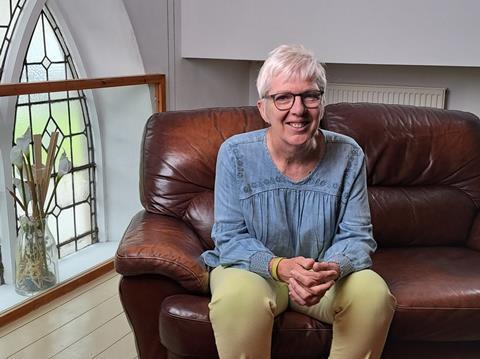Parents who are wrestling with issues of sexuality and gender in their family are too scared to admit they hold traditional Christian views, warns Sarah Sedgwick

My heart sank as I read the message. Ruth’s* daughter was in surgery. There was no going back.
I met Ruth through an online group for Christian parents of LGBT kids. She shared the heartache of her 20-year-old daughter’s transition, culminating in today’s double mastectomy. Ruth was heartbroken and had a deep fear of sharing this with the friends whom she worships with every week. She didn’t want to be judged, labelled transphobic or shunned.
Ruth is not alone. There are thousands of parents who stay silent about their anguish. These parents deserve support, compassion and prayer, but many struggle to ‘come out’ as parents of gay or trans kids. They fear they will be rejected by their fellow Christians; their anxiety fuelled by overheard conversations celebrating and endorsing homosexuality or transgender identities from Christians who have concluded that such things must be celebrated if we are to love well.
Fear of rejection
These parents are often forgotten in the debates around sexuality in the Church. But they shouldn’t be. It’s really tough to hear your church family championing same-sex marriages when it’s the polar opposite of your experience and understanding of scripture.
The common denominator for these individuals and parents is fear of rejection, or being labelled transphobic, homophobic, lacking compassion or even un-Christian. Take a cursory glance at social media and there’s plenty of fuel to stoke that fire. Our culture is easily offended. You are either with us or you are against us and, if you are against us, expect a big backlash.
Thousands of parents stay silent about their anguish
Sadly, this attitude has spilled over into the Church. Social media posts create tidal waves within the Christian community as people share outrage over traditional interpretations of scripture, countered by the often-harsh responses of some conservatives, who answer without thought to the sensitivities of the topic and the experiences of those who wrestle with it.
An escalation of offence
Ruth is a victim of the escalation of ‘offence’ within Christian circles. Her fear of speaking out is a result of our society’s inability to love well despite our differences. But if churches are to be counter cultural, we must create spacious places where families and individuals find shelter from the storms of life, even if we do not understand or agree with the source of that storm.
Paul’s advice in Romans 12 is pertinent to both liberals and conservatives. “Be devoted to one another in love” (v10). “If it is possible, as much as depends on you, live peaceably with everyone” (v18). That is a challenge to which we must rise.
Gender and sexual identity are huge topics. But what of Paul’s instructions? Can we turn the clock back to the culture of ‘agreeing to disagree’, respecting each other’s differences? Even if you support transitioning, can you show compassion to the mother who raised a daughter and now grieves her loss?
Creating community
I think of Ruth, labelled transphobic because she will not affirm her daughter as trans. Yet this same woman put aside her grief and disappointment to nurse her daughter through the after effects of surgery. Ruth needs a community to pick her up, to be “joyful in hope, patient in affliction, faithful in prayer” (v12), with and for her. Ruth needs her church to be a place of sanctuary. Instead, she and others like her have to hide their feelings because their honestly held beliefs drawn from the Bible causes offence.
We must learn the art of compassion without compromising our faith. Our churches must feel safe to all; places where we do not fear rejection because our beliefs are counter cultural. Whether a real or perceived threat of rejection exists, we must be sensitive to the needs of this growing population of Christians directly impacted by gender or sexual identity, who need to feel secure in sharing their pain.
*Name changed




































1 Reader's comment